NEW DELHI: India’s commanding seven-wicket victory over Pakistan in the Asia Cup on Sunday may have looked routine on the scoreboard, but the aftermath turned the Dubai International Stadium into the stage of a diplomatic drama. Pakistan skipper Salman Ali Agha refused to attend the post-match presentation ceremony in protest after Indian players declined to shake hands, an incident now at the centre of what many are calling “handshake-gate.”
Go Beyond The Boundary with our YouTube channel. SUBSCRIBE NOW!
The flashpoint unfolded moments after India captain Suryakumar Yadav sealed the match with a towering six. Instead of waiting to exchange the customary handshakes with his opponents, Suryakumar shook hands only with batting partner Shivam Dube before leading his teammates straight into the dressing room. Within seconds, India’s support staff shut the door, leaving Pakistan’s players stranded in the middle of the ground.
Mike Hesson on India's handshake snub: 'We were disappointed that our opposition didn't do that'
Pakistan head coach Mike Hesson expressed frustration at the snub. “We were ready to shake hands at the end of the game. We are disappointed that the opposition did not do that. We went over there and they were already gone to the changing room, so that was obviously a disappointing way to finish the match,” he told reporters.
The Pakistani players lingered on the field for a couple of minutes before retreating. Hesson, visibly agitated, rushed towards India’s dressing room, only to find the doors locked. He was later spotted in a tense conversation with match referee Andy Pycroft. In solidarity with his team, captain Salman Ali Agha chose not to appear at the post-match presentation, leaving broadcasters scrambling.
Pakistan’s team management confirmed their protest in a statement. “The behaviour of Indian players was against the spirit of sportsmanship. That is why skipper (Salman) Agha was not sent to the post-match ceremony,” it read.
India, however, stood firm. At his press conference, skipper Suryakumar Yadav said: “The team was aligned with the government and Board of Control for Cricket in India in not shaking hands with the Pakistan team. We stand with the victims and families of the Pahalgam terror attack and we express our solidarity. We want to dedicate today’s win to the armed forces.”
The political overtones were impossible to ignore. The match was the first between the neighbours since a military conflict in May. That escalation followed an April terror attack in Pahalgam, Kashmir, which India accused Pakistan of supporting.
While India’s spinners and Suryakumar’s unbeaten 47 scripted a dominant on-field win, the real talking point was India's refusal to shake hands after the match and Pakistan’s captain protesting in silence — by refusing to show up at the presentation, amplifying the rift that cricket could not bridge.
Catch Lovlina Borgohain's inspiring story on Game On, Episode 5. Watch Here
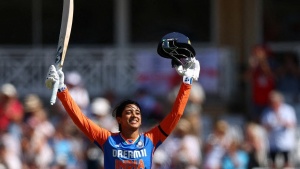 Smriti Mandhana's Blistering Century and Sree Charani's Debut Heroics Power India to Crushing T20I Victory Over England
Smriti Mandhana's Blistering Century and Sree Charani's Debut Heroics Power India to Crushing T20I Victory Over England
 Prithvi Shaw Admits to Career Setbacks: Faulty Choices and Distractions Derailed Cricket Focus
Prithvi Shaw Admits to Career Setbacks: Faulty Choices and Distractions Derailed Cricket Focus
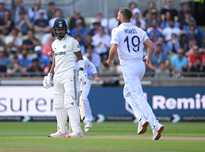 Woakes Rueful After Close DRS Calls Favor India in Edgbaston Test; England Missed Early Domination
Woakes Rueful After Close DRS Calls Favor India in Edgbaston Test; England Missed Early Domination
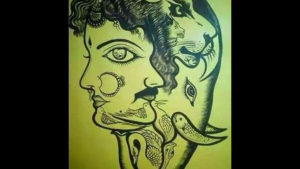 Challenge Your Perception: Only 1% Can Decipher This Animal-Filled Optical Illusion
Challenge Your Perception: Only 1% Can Decipher This Animal-Filled Optical Illusion
 India's Fielding Woes and Batting Collapses Blamed in First Test Defeat Against England: Former Selector Urges Patience
India's Fielding Woes and Batting Collapses Blamed in First Test Defeat Against England: Former Selector Urges Patience
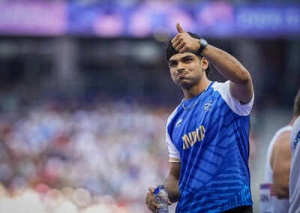 Neeraj Chopra Taps Jasprit Bumrah as Potential Javelin Prodigy
Neeraj Chopra Taps Jasprit Bumrah as Potential Javelin Prodigy
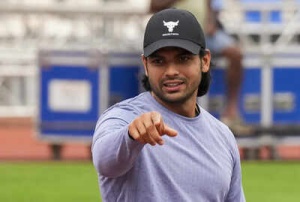 Neeraj Chopra Classic: Javelin Throwing World Descends on Bengaluru for Gold Event
Neeraj Chopra Classic: Javelin Throwing World Descends on Bengaluru for Gold Event
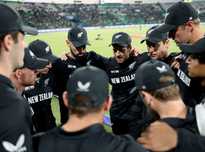 Black Caps to Face Australia, England, West Indies & South Africa in Action-Packed Home Summer
Black Caps to Face Australia, England, West Indies & South Africa in Action-Packed Home Summer
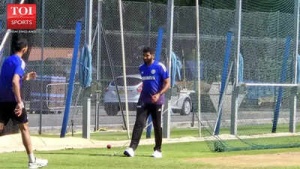 Bumrah's Birmingham Nets Session: Pace Variations and Test Readiness in Focus
Bumrah's Birmingham Nets Session: Pace Variations and Test Readiness in Focus
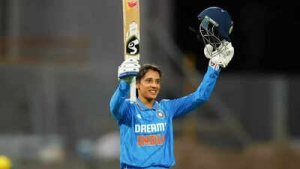 Smriti Mandhana Makes History, Becomes First Indian Woman to Score Centuries in All Cricket Formats
Smriti Mandhana Makes History, Becomes First Indian Woman to Score Centuries in All Cricket Formats